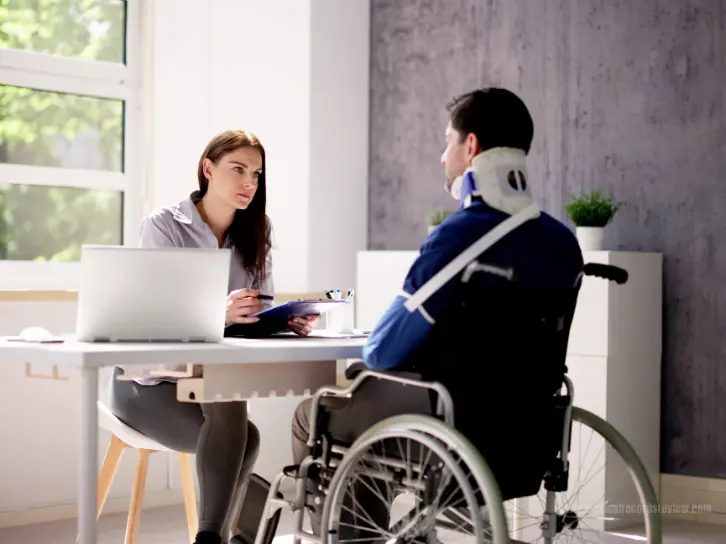Introduction
Effective medical records review is essential for lawyers in personal injury and medical malpractice cases. These reviews give a thorough analysis of the plaintiff’s medical records, which is important in advancing arguments and seeking justice. The plaintiff usually has a great deal at stake in the cases of orthopedic injuries such as fractures or dislocations, which frequently leave a noticeable impact on the quality of life.
The attorneys face several difficulties, like the need to grasp complicated phrases, interpret large volumes of information, and even locate the necessary information amidst a plethora of documents. Implementing professional practices to do anything in an orderly manner can be beneficial to the result of cases in many ways.
Understanding Orthopedic Injuries
Orthopedic injuries impact the parts of the body dealing with support and movement, muscles, bones, ligaments, and tendons. Here are some common types of orthopedic injuries:
- Fractures: These are breaks in bones, most often occurring because of action like falling or direct contact.
- Sprains: Damaging of ligaments in joints, most often in the ankles, is like stress and strain extends the tissues.
- Strains: These are the injuries sustained in muscles or tendons being forced to act at their capacity.
In orthopedic settings, work-related accidents arise due to:
- Repetitive motion activities; and
- Lifting of heavy objects.
- Slipping and falling.
These can be debilitating in the sense that they affect the patients in terms of:
- Making movements difficult,
- Their capacity to endure pain, in terms of chronic pain
These are crucial determinations in a legal context, as these very limitations are what determine compensation owing to expenses on treatment and future loss of earnings.
The Role of Medical Records in Legal Cases
All these would be implemented by using existing case legal precedents- which means that there will be no need for excuses for loss or damage. Medical treatment veterans are largely those who have suffered great injuries on active duty- which in most cases leads to the need for amputations. The need for accurate recording and management of all injuries and why they were suffered in the first place is ideal in this case.
A gap frequently exists in respect of the precise understanding of certain medical terms of orthopedic medicine during the review of medical records. Understanding these terms is important in chronicling the activities that the plaintiff has done before the case and how this would elevate the litigation.
These concerns are justified as medical charts constitute significant evidence in cases that concern medical negligence and other lawsuits for personal injury claims cases. This reinforces the arguments that under orthopedic medical records, injuries sustained must be subjected to proper reviewing processes to win the case.
Challenges and Strategies in Orthopedic Medical Record Reviews
Conducting orthopedic medical records review red flags with many aspects like disorganized and unreadable notes. Some records are always disordered and don’t always appear in chronological order to provide a structural focus on the buildup of a certain medical condition of a patient. In overcoming such difficulties, effective medical record review techniques can be used including
- Classification and Indexing: Medical records can be organized into multiple layers into exams, therapy, and physician’s first impressions which would be advantageous in conducting a review.
- Chronological Organization: The use of chronology in arranging records further assists in the clarification of the cause-effect provision of treatment in a medicolegal framework.
The need to be thorough in every stage cannot be stressed. Reviewing the medical charts is also critical as every claim is required to justify the circumstances surrounding that claim enabling the detection of any trends and anomalies in the duration of interest.
Working together with medical reviewing companies or experts is very beneficial because they provide a broad spectrum of insights as well as help explain complicated scenarios. This approach is especially effective since it contributes not only to a comprehensive understanding of the cases but also to improving the legal position of the client by preparing proper evidence during trial.
Essential Strategies for Effective Orthopedic Medical Record Reviews
Dividing the records into groups improves the reviews as their comprehension and evaluation are made easier. A generic chronological arrangement also helps in determining the order of events and treatments undertaken, making it easier to establish causation and assess if care was sufficient.
Summarizing information into brief reports that capture important aspects is necessary to make reporting effortless. These reports also referred to as deposition summaries or case history summaries, are essential for trial preparation in providing detailed accounts of the plaintiff in the case. Medical records allow for a more orderly preparation of the trial, with all the relevant information already in place.
Leveraging Technology in Medical Record Reviews
The use of technology has redefined the process of reviewing orthopedic medical records. The use of electronic medical record (EMR) systems enables the quick retrieval and examination of huge information, thus, hassle-free for the practitioner. This form of technology underpins the generation of chart review deposition summaries for case reviews and aids attorneys in rapidly comprehending difficult cases.
Medical chart review tools, such as deposition tools, enhance the internal accuracy in every detail. Medical records become quite easy to search, and any clinical documentation required can be easily searched and located electronically. This is by the proper documentation requirements stated in the training provided in the Medicare Learning Network’s factsheet emphasizing the policy on medical record documentation.
Thus, employing such means effectively broadens the scope of ensuring both the completeness and the accuracy of the medical record review process.
Conclusion
By applying the techniques that have been put forward, your case can be significantly maximized through efficient orthopedic reviews. Concentrating on Orthopedic Medical Record Reviews: Essential Strategies for Attorneys strengthens your confidence to better cope with the intricacies of medical records. Order, teamwork with the medical professionals, and technology make legal decisions reasonable.
All these developments not only strengthen legal discussions but also facilitate the entire court presentation. Reevaluating such approaches changes the way you work on cases which allows for easy and efficient generation of detailed accounts of medical chronologies.
Frequently Asked Questions
What challenges do attorneys face when reviewing orthopedic medical records?
In the course of the service, many attorneys will confront the challenges of conducting orthopedic medical record reviews including incomplete information, chaos of records, untraceable written papers, and inappropriate abuse of abbreviations. These challenges must be tackled against the backdrop that at times it is necessary to seek the assistance of specialized chart reviewers to guarantee proper interpretation.
What types of orthopedic injuries are commonly seen in personal injury cases?
The Common orthopedic injuries that vocationally seek compensation in personal injury cases include bones, muscle, and ligament injuries resulting in sprains, strains, and fractures, among other musculoskeletal system injuries. Such injuries occur frequently because of unexpected workplace accidents or other sorts of incidents and dramatically lower the quality of life for the plaintiffs and their legal claims.
What are orthopedic medical record reviews and why are they important for attorneys?
Plaintiff medical records related to the orthopedic injuries sustained during personal injury and at the hands of practitioner’s medical malpractice cases are subjected to Orthopedic medical record reviews. They are important and beneficial to lawyers as it allows them to understand the extent of the injuries sustained, whether adequate treatment was provided as well as carry out a causal analysis of the effects or factors involved that may have contributed and thus might affect the outcome of cases.
We provide comprehensive and impartial medical record reviews, combining both medical and legal expertise to support attorneys and medical peer review physicians in handling workers’ compensation, medical malpractice, and personal injury cases.
Our outsourced medical review solutions offer convincing medical information, enabling you to confidently engage in settlement negotiations or effectively argue cases in court. We also assist in optimizing their claims processing through our expert medical record review services.
Strengthen your orthopedic injury cases with expert medical records review from MRR Health Tech, precise, reliable, and attorney-focused!



